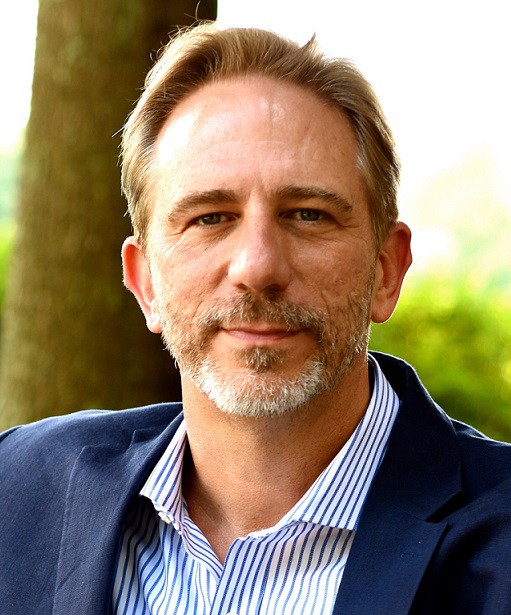Immediately the king sent a soldier of the guard with orders to bring John’s head. He went and beheaded him in the prison. — Mark 6:27
On the day we write this post, during the week Tyre Nichols was buried after being murdered by Memphis police officers, the Gospel reading is Mark 6:14-29. It is acutely appropriate.
Mark is the most concise Gospel account, and the author rarely tells long stories. But he does so here. We get the entire story and backstory to the murder of the prophet John the Baptist. It offers an illuminating, horrifying example of arbitrary state power over life and death. The kind of arbitrary state power that was visited upon Tyre Nichols.
John is put in prison because he has criticized the illicit marriage between Herod and his new wife Herodias. Herodias wants John dead for this criticism. But Herod holds back from killing John, not due to any legal constraint on his power, but because — in an interesting turn of phrase — he “feared John, knowing that he was a righteous and holy man.” The text goes on to say that Herod found John both perplexing and interesting.
It was a thin basis for a man’s survival, but it sufficed for a while.
But then Herod throws a grand party, inviting all the local bigwigs. The wine is clearly flowing freely. Herodias’ daughter — Herod’s stepdaughter — offers a delightful dance. Herod offers a drunken vow to give the girl anything she asks. She asks for John’s head on a platter, and that is what she gets. She passes it on to her mother, and all is now well in the Herod household.
John the Baptist, one of the greatest prophets in the history of Israel, is dead.
“He was the authorized local arm of the Roman Empire, just like the officers who killed Tyre Nichols were the authorized arms of the state.”
The reason he is dead is because Herod is free to kill him at his slightest whim. He has complete, arbitrary, power over those subjected to his rule. He is a garden-variety tyrant, of whom there have been so many examples in the sad annals of human history. But it also must be noted that he was the authorized local arm of the Roman Empire, just like the officers who killed Tyre Nichols were the authorized arms of the state.
The basic theory of modern democratic, rule-of-law governance is that the people make a compact to create structures of government for the good of the political community. Government — and all its subsidiary institutions — exists for the good of the community that created it. Government functions are tightly constrained under the rule of law. The people delegate just enough power to the government to perform the needed functions.
Among the functions people ask governments to provide is security from crime and invasion. Police and military officers provide that service. They are entrusted with weapons and with the highly regulated authorization to use force under designated circumstances.
“No one who is going about his or her innocent daily business should ever have to fear a police officer.”
No one who is going about his or her innocent daily business should ever have to fear a police officer. These officers should be so carefully selected, developed and constrained, so embedded in a culture of respect and restraint, so clear about who authorized their service and the laws by which their actions are governed, that no ordinary person should have reason to fear them.
But for Black Americans like myself (Lisa), in light of our foundational status in this nation as non-citizens, and police officers’ genesis from slave patrols (neighborhood watch groups conscripted to protect white citizens and their property from destruction by non-citizens) there’s no reason people of African descent in the U.S. should ever not fear interactions with the state.
Our mistake and disillusionment now is that we thought hiring more Black officers would help. But it didn’t. Not only were most of the officers Black, so was the chief who created the unit. Plus, she’s a woman. So, we can’t even say more women would help.
It’s the state. The power is with the state. The police (regardless of their color or gender) are the arm of the state like the guard who beheaded John the Baptist. He did what the state told him to do. He followed orders.
Thus it is that a man like Tyre Nichols can die after being brutalized at a traffic stop by police officers whose sacred responsibility is to protect their citizens, not to murder them.
So the issue comes back to whether Black Americans are truly understood as citizens.
Blackness as a legislated construct was invented in 1662 to determine who was a citizen. To be Black was to be a non-citizen, therefore enslavable. By the time the 3/5ths Compromise was enshrined into our Constitution in 1787, Blackness as non-citizen was as normative as oxygen. It was assumed.
While African Americans built America and our fight for our freedom has shaped America, we did not create this government. We were non-citizens. So, under this logic, it doesn’t work to assume the government should work for us. And it hasn’t. And that is our constant struggle; to re-form a government built on the foundation of our demise.
Every time something like this happens, echoes of 400 years of Black disenfranchisement of state violence against Black bodies, of the constant desecration of precious Black human beings, resound again. Not a few bad apples, not a bit of bad training, but a racist national culture that has authorized the abuse of Black people by the state.
This is what must change.

Lisa Sharon Harper (Photo © Joy Guion Bailey)
Lisa Sharon Harper is a speaker, writer and activist and founder of the consulting group Freedom Road. She is the author of several books, including her latest, Fortune. She is a senior fellow at Auburn Theological Seminary. Harper earned a master’s degree in human rights from Columbia University and previously served as chief church engagement officer for Sojourners. Read more of her work at her Substack, “The Truth Is… .” Learn more at lisasharonharper.com.

David Gushee
David P. Gushee is a leading Christian ethicist. serves as distinguished university professor of Christian Ethics at Mercer University, chair of Christian social ethics at Vrije Universiteit Amsterdam, and senior research fellow at International Baptist Theological Study Centre. He is a past president of both the American Academy of Religion and the Society of Christian Ethics. His latest book is Introducing Christian Ethics. He’s also the author of Kingdom Ethics, After Evangelicalism, and Changing Our Mind: The Landmark Call for Inclusion of LGBTQ Christians. He and his wife, Jeanie, live in Atlanta. Learn more: davidpgushee.com or Facebook.
Related articles:
Living into lament: A white response to the killing of Tyre Nichols by police | Opinion by Robert P. Jones
The truth about police brutality | Opinion by James Ellis III
Three images to remember Tyre Nichols | Opinion by Julia Goldie Day


